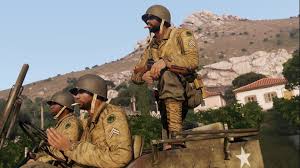Brothers of Valor, Valor Denied: African American Soldiers in US History
This month, the Pritzker Military Museum & Library continues a 3-part blog series addressing issues of inclusion and diversity in America’s armed forces. Our second author is Dr. Robert F. Jefferson, who discusses the role of African American soldiers in US History. The final post in this series will address the contributions and experiences female service members (Women’s History month in March).
In his 1935 study titled Black Reconstruction in America, 1860-1880, W. E. B. Du Bois chronicled the titanic struggles of African Americans in the Civil War and noted that the African American historical quest for first-class citizenship and full equality in the United States was forged on the battlefields of America’s wars. “Nothing else made Negro citizenship conceivable, but the record of the Negro soldier as a fighter,” the venerable scholar asserted. With that, Du Bois firmly established the historical context for the African American presence in the United States military. The nation would only recognize African Americans only after they proved their capabilities in times of war. From the American Revolutionary War through the Vietnam War, African Americans served valiantly in the defense of this country. But as scholars have pointed out, there are certain themes that have shaped the history of African Americans in the U.S. military since the founding of the republic. The African American experience with the United States military have revolved largely around Exclusion, Necessity, Raised Expectations, and Denial. What follows is an overview of how the black military experience has dovetailed with the nation’s pursuit of racial equality.
In 1775, Continental Army Commander George Washington and other senior officers opposed the arming of blacks out of fears of slave insurrections. But Virginia Royal Governor, John Murray, the Earl of Dunmore’s proclamation, inviting slaves to leave their masters and join the Royal Army and the abysmal numbers of colonists entering the new army forced Washington to overcome their fears of slave uprisings and to enlist free blacks and slaves in large numbers. The soaring Revolutionary rhetoric and the intense campaigns and grim sieges inspired visions of liberty among African Americans as they fought desperately to realize their own freedom in the war for independence between 1775 to 1781. But as African American Revolutionary War veterans soon learned, the war also yielded its own set of ironies. American slavery had not only endured but had even expanded in the decades leading up to the Civil War.
The historical pattern that structured the African American experience in the U.S. Army during the American War for Independence continued during the Civil War. After Fort Sumter, cabinet members in the Lincoln’s administration openly questioned the idea of African American participation in the impending conflict and Union Army officers expressed grave misgivings about the capabilities of black troops. But as battlefield casualties of the Union Army mounted and the initial ardor for war lessened, the president issued a proclamation, allowing for the widespread enlistment of African Americans in the Union Army. During the fighting, black soldiers performed valiantly on battlefields, ranging from Fort Wagner to Chaffin’s Farm, earning numerous Medals of Honor. While gaining their freedom however, many black Civil War veterans discovered that equality continued to elude them.
In the World War, the history of African Americans in the U.S. Military took on a similar pattern. Millions of black men registered for Selective Service and nearly 400,000 African entered the ranks of the army in service of their country. Serving in various regiments and divisions, black soldiers saw action in the Argonne Forest and other areas of Europe. For example, one of the most celebrated units, the 369th “Hellfighter” Regiment, fought valiantly with the French Army. But black soldiers also endured military racism within the American Expeditionary Force, served in racially separated armies, saw limited combat action at the front, and labored as stevedores. After returning from Europe, black WWI veterans faced dashed hopes and renewed racial violence in cities such as Chicago, East Saint Louis, and Tulsa, Oklahoma.
In significant ways, World War Two differed for black GIs but carried the same connotations of race. For example, over one million African Americans joined the armed forces and most black military personnel served in racially segregated units in Europe, Asia, and in the Pacific. But, as in World War I, black GIs encountered American style racism, state sanctioned Jim Crow military policy, and bouts of racial prejudice and humiliation. Despite the challenges of Jim Crow racism, black soldiers made a tremendous contribution to the fighting of the war itself. African American servicemen distinguished themselves on the battlefields of Europe and Asia, serving in the U.S. 92nd and 93rd Infantry Divisions, and as pilots with the 99th Pursuit Squadron, the 332nd Fighter Group, and the 477th Bombardment Group. In addition, the 761st Tank Battalion performed admirably throughout France, Belgium, Holland, and Germany and were among the first American troops to see Adolph Hitler’s concentration camps in April of 1945. In all, seven African American soldiers were recognized for the Medal of Honor. Indeed, the service of black WWII GIs contributed to President Harry S. Truman’s 1948 Executive Order, desegregating the U.S. armed forces. But the true death of Jim Crow racism in the armed forces would not occur until black struggles for equality were achieved several decades later.
During Black history month, we pay homage to the history of African American patriots in the United States. But we would do well to recognize the ways in which race and war have been deeply etched in the black experience and how they together have informed America’s ongoing struggle to afford equality to its citizens. To do anything less would be a disservice to all whom gave and to whom continue to give their lives to this country in the name of freedom.
This blog has been contributed by Dr. Robert F. Jefferson from the University of New Mexico.
